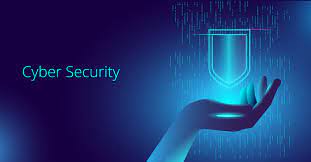Working from home isn’t the only area where COVID-19 security risks exist. Scams and hacks involving the Coronavirus are common, preying on individuals who are anxious for information or resources about the epidemic. It’s risky if your employees don’t know what they’re doing when it comes to cybersecurity.
The following are some of the most common coronavirus cyber scams that occurred in 2020
Cyberattack Prevention
- Many websites that purport to be legitimate pandemic maps, such as those that depict illness spread or the number of people who have been vaccinated, are fraudulent. These websites attempt to infect your computer with viruses, malware, and spyware.
- COVID phishing emails: Phishing emails posing as official organizations will include links to websites claiming to provide the most recent COVID-19 updates. The hyperlinks lead to websites that may infect your computer with malware and viruses.
- Fraudsters pretend to sell “critical” COVID-19 items like sanitizer and masks in internet shops, but they either provide bogus products or never supply them at all.
- Scammers (sending emails posing as being affiliated with a game), producing fake versions of legitimate mobile apps for players to install and infected their device, or sending bogus QR codes through Discord are all examples of online gaming frauds.
- Scams on the COVID stimulus and unemployment: In the United States, fraudsters have been collecting personal information from people online in order to file for bogus unemployment benefits, frequently while they are still working. During the epidemic in 2020, fraudsters took advantage of overcrowded state unemployment offices, and they continue to do so in 2021.
COVID-related cyber frauds have turned to vaccinations in 2021. On the internet, many hackers are advertising fake vaccination cards and even fraudulent vaccinations
- You will not be charged for a vaccination. Vaccines are not sold online, and if you order one and receive a “vaccine,” do not use it since it might be deadly.
- To arrange a vaccination appointment, don’t rely on third-party services.
- A COVID test is not required prior to receiving the vaccination. It’s a fraud if someone other than your doctor tells you to obtain a COVID test shortly before your injection (particularly if they charge you).
- Be wary of websites that claim to sell or deliver vaccinations but aren’t.
Keeping yourself secure on the internet during COVID-19
By staying suspicious, you can avoid coronavirus-related hoaxes. If a website or offer appears to be too good to be true, it most often is. When working from home, take care to protect the security of your network. If your boss hasn’t given you any instructions on how to connect safely from home, or if you’re self-employed, it’s up to you to keep your data safe. You may prevent being a victim of a COVID-19 cyber scam by being vigilant.



